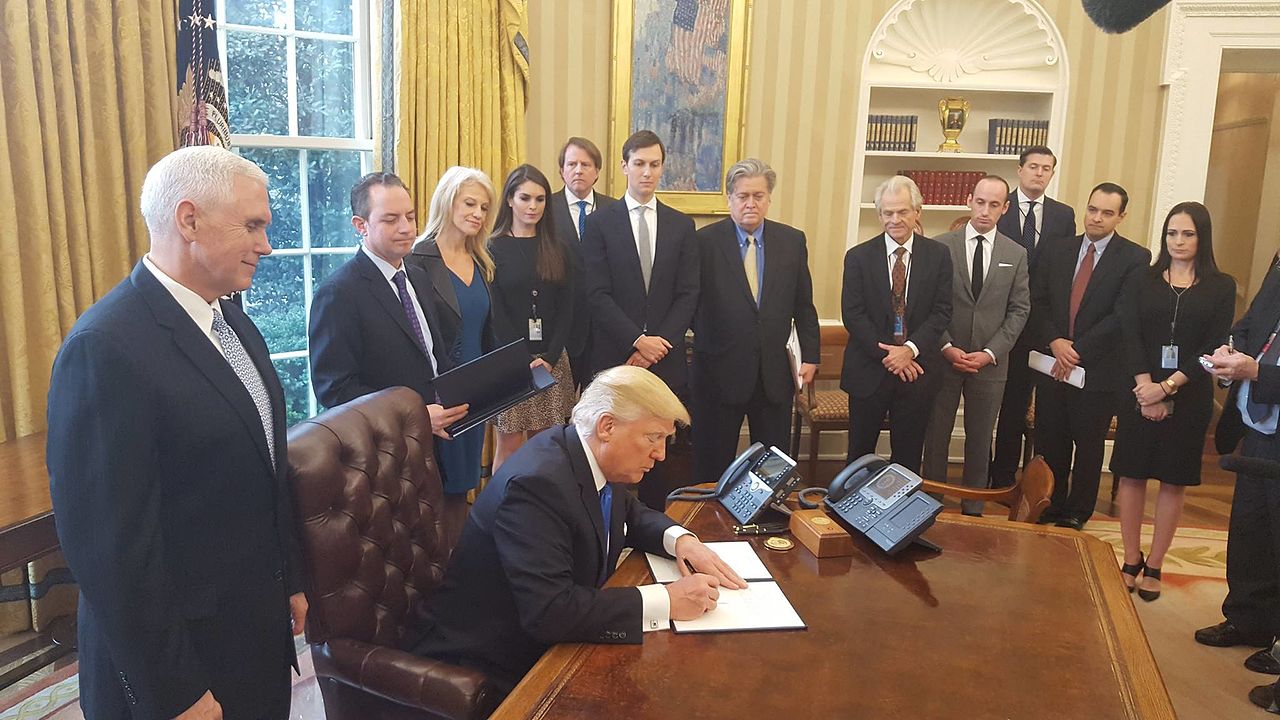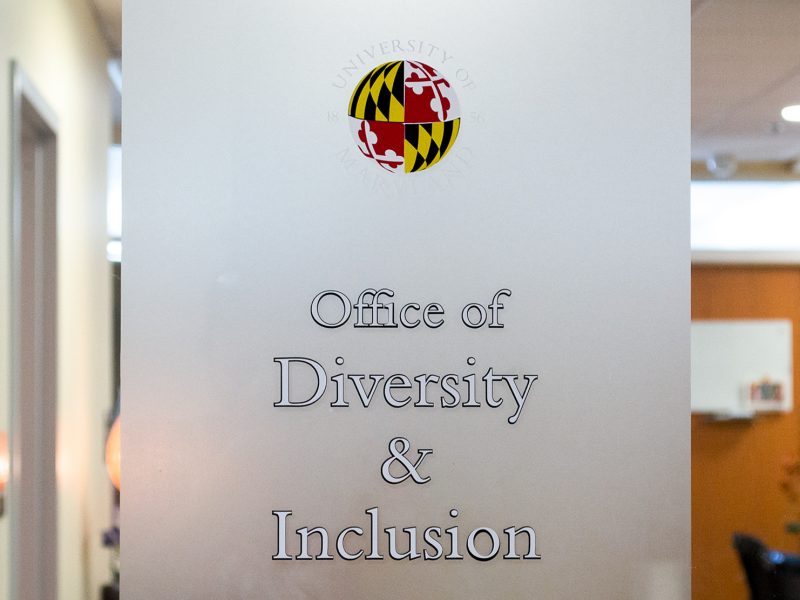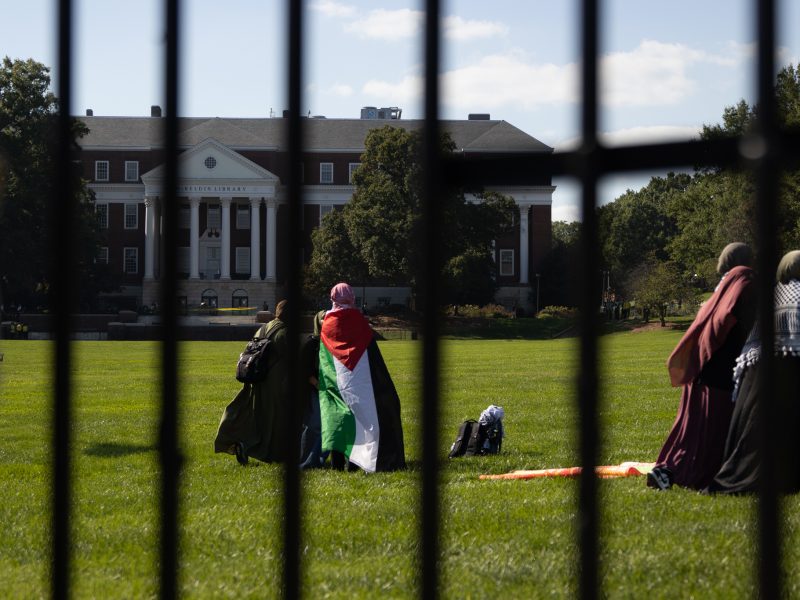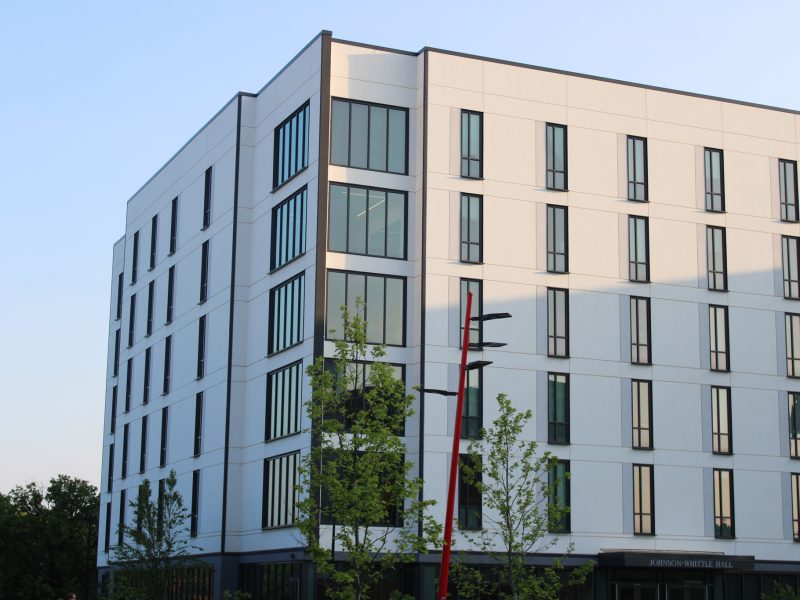In the wake of widespread confusion and fear following President Trump’s executive order limiting travel from seven foreign countries, an immigration lawyer visited the University of Maryland Tuesday to field questions from those concerned about the ban.
While a federal judge has temporarily blocked the ban, Daniel Williamson, a partner with Fragomen Worldwide Immigration Solutions, emphasized that the suspension could be lifted at any point — making the executive order enforceable again.
Williamson told a room of about 85 people that those affected should watch or read the news diligently to stay updated .
Trump signed the executive order Jan. 27, which sought to bar travel into the United States for citizens of seven predominantly Muslim countries for 90 days. The order also sought to suspend the entry of refugees for 120 days, as well as bar the entry of Syrian refugees indefinitely.
A federal judge issued a restraining order temporarily blocking the ban after the state of Washington sued the Trump administration. A circuit court heard arguments Tuesday evening over whether the ban should go back into effect.
“Every day there’s something new on this,” Williamson said, noting that he hasn’t been able to stop watching the news.
Williamson also said he “wouldn’t be surprised” if Trump signs a motion to extend the ban past its original 90 days, as a result of initial confusion and the temporary suspension.
“This is something that will probably be the status quo for this administration,” he said. “I don’t think we’ve heard the last of it.”
Williamson also outlined several key points for legal permanent residents who may be subject to the order. First, delay any travel outside the U.S., particularly to one of the seven affected countries. If residents can’t avoid traveling, Williamson said they should send a copy of their immigration documents to a friend or family member who can wait for them at the airport and give their documents to an immigration attorney in the case of complications.
When returning to the United States, Williamson said green card holders should travel to airports where federal judges have previously ordered temporary stays on the executive order, including Logan International Airport, John F. Kennedy International Airport, and Washington Dulles International Airport.
Finally, do not sign an I-407 form, even if pressured by Customs and Border Protection officers, Williamson said. This form relinquishes a person’s green card, and some immigrants have signed the form without knowing it, he added.
After his presentation, students and audience members asked about the potential threat to their work and study visas.
Williamson added that “the administration is at least going to examine that issue,” for future measures.
This university’s International Students and Scholar Services arranged Williamson’s presentation Tuesday. ISSS director Susan Dougherty said the university is committed to serving its community members, regardless of national origin or religious affiliation.
“It has only been 11 days since this order was first signed,” Dougherty said. “I know for many of us it has seemed much, much longer.”



